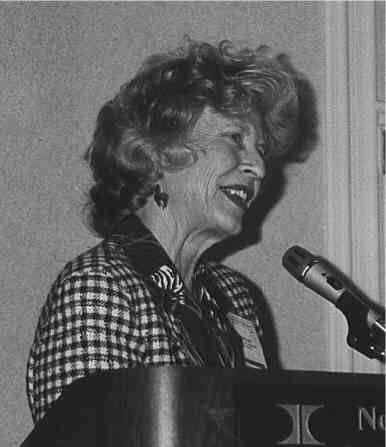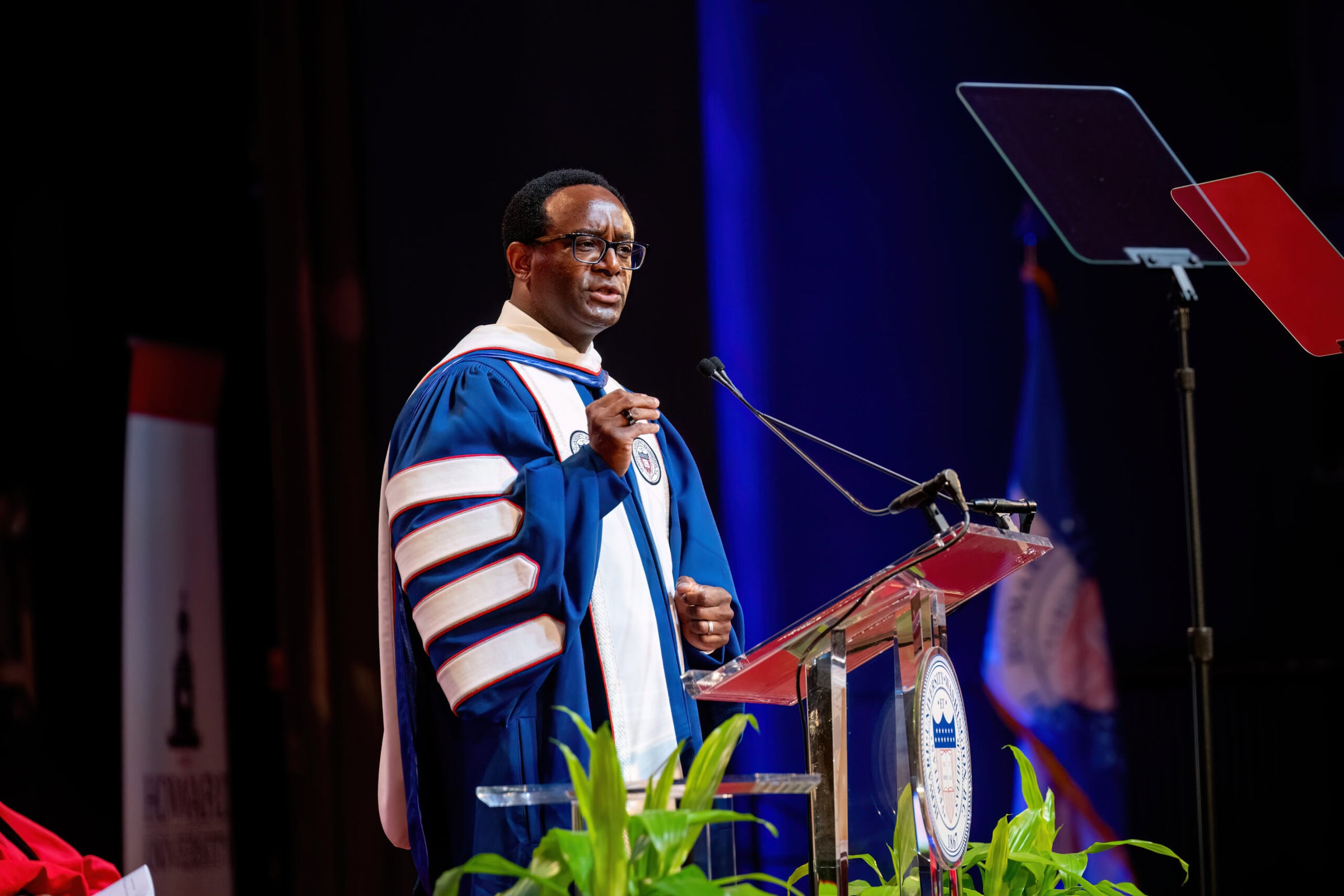Are we experiencing a rash of surliness, a decline in respect, an escalation of violence, or the vanishing control of shame? The experts see a rising new curve of rudeness, while older sensibilities descend the downward slope toward quaintness. Ready or not, we’re in for a lengthy public conversation about civility. It’s the key term for the waning years of our millennium. Foundations, retired members of Congress, university presidents, and assorted pundits and public figures have moved into the high gear of mobilizing talent by forming commissions. Former senator Sam Nunn and former education secretary William Bennett have launched the National Commission on Civic Renewal, which will draw on their deep understanding of civility in Washington, D.C. “Former” is the relevant adjective. From Boston, former Colorado representative Patricia Schroeder will head the new Institute for Civil Society with a $35 million endowment from an anonymous donor.
Judith Rodin, president of the University of Pennsylvania, has similarly convened a commission, the National Commission on Society, Culture, and Community, composed of academics (including me), journalists, and an array of public figures. The Brookings Institution and the Pew Charitable Trusts have weighed in with plans to figure out what happened to public trust, politeness, league bowling, and restraint toward umpires.
All of these efforts are now getting major media attention. A front page article in the Los Angeles Times carried the headline “New Movement Plots More Civil Way of Living.” “Excuse Me, but … Whatever Happened to Manners?” queried USA Today, and a U.S. News and World Report poll recorded an 89 percent consensus that incivility was a serious national problem.
Civility manifests itself in society at two levels: as surface sheen when we all learn to control our wayward impulses and conform to recognized standards of decorum, learning to bite our tongues, control our fists, and avoid letting the door slam on the person behind us. Beneath that conspicuous level of civility lies its nourishment: an alert awareness of those around us and a knowledge of how to act so as to register respect. As is always the way with substance compared to style, this awareness is a plant of slow growth requiring regular feedings from our imagination and emotions.
Still, there’s something vaguely risible about a group of well-paid professionals ruminating over public morals after fortifying themselves with large doses of shared nostalgia. Less humorously, some veterans of community service programs resent the attention that high-profile names—Johnny-come-latelies to the street scene—receive just for talking about the subject. Recognition aside, a few people naturally have a strong sense of community and will create communities where none exist. We’re more in their debt than we know, but most Americans are not like that. We are reared to be independent and self-focused, which means that our individual selves have to be reached first if we as members of the public are to be aroused. Perhaps 1997 will be the year that a lot of American selves discover that the private can’t be sustained while ignoring the public.
I’m too much of a social science skeptic not to need more proof that the sum of carefully chosen indices of civility is smaller today than in previous decades, but if there is a surge of interest in quickening our sense of community and examining our changed mores, surely historians will want to be there, acting, observing, criticizing, and recording.
The first way for historians to share in the new engagement with civility is both obvious and subtle and something most of us try to do already: evoke the full humanity of the historic figures that we introduce our students and audiences to. I bring this up because of memories of my own schooling when debunking formed a popular motif. I often heard more about how venal, ridiculous, or manipulative people had been than how difficult were the decisions they faced. Though amusing, debunking didn’t give me a good sense of the past, and it left a bad taste in my mouth.
The presentation of history—whether in museums, movies, or the classroom—offers a rare opportunity to explore the human condition. While canvassing the range of predicaments and choices that people in the past faced, we can open up the always veiled question of what we are as human beings. Where better to nurture civility than in the cultivation of sympathy that is based on knowledge?
On a more practical level, we can actively support the humanities in the United States. The National Endowment for the Humanities (NEH), despite the steep cuts in its funding, remains the principal supporter of humanities scholarship and a major contributor to exhibits, television series, and school programs.
We know that literature, philosophy, and history can deepen the understanding and tutor the emotions of young people. It isn’t hard to make a case for how the humanities contribute to civility, but the case has to be made.
While I was in Washington, D.C., recently, several congressional aides told me that members of Congress respond much more positively to invitations from schools and museums in their own districts than to Capitol Hill visits. We all have representatives in Congress who will be voting on next year’s NEH appropriations. Because universities tend to give the lion’s share of their attention to maintaining federal grants for scientific research, it’s up to us to plan a campus event that would showcase the humanities for our representatives. If we do not act, it probably won’t happen. Perhaps some of you have already done so and could share your reflections with us.
Lots of old concerns can be marshaled under the new rubric of civility. Or perhaps its serious possibilities as a goad and an inspiration will be obliterated by high-speed trendiness. I’d like to hear what you think about all of this and other matters.


